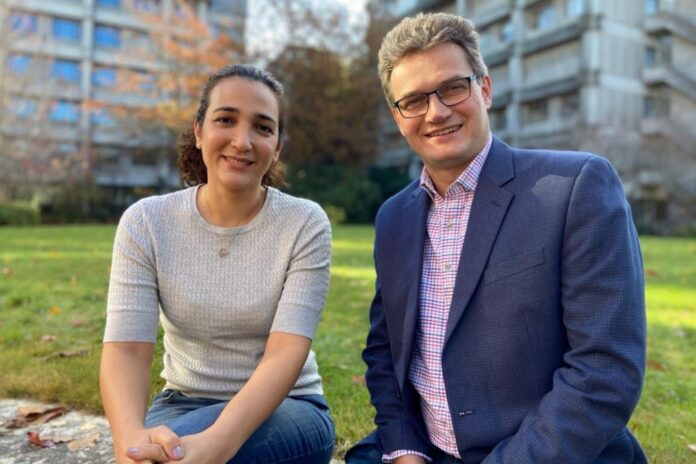Source: University of Canterbury
08 June 2021
Investors in Muslim countries gain higher returns from the share market during Ramadan in a quirk that could be linked to a lift in mood during the religious festival, University of Canterbury (UC) researchers have found.
-
Dr Mona Yaghoubi (left) and Professor Jedrzej Bialkowski
UC Head of Economics and Finance Professor Jedrzej Bialkowski first identified a phenomenon he named the ‘Ramadan effect’ in 2012.
Together with his co-authors, he found that stock returns in the markets of Muslim countries were significantly higher – up to nine times higher than usual – during the month which Muslims observe with fasting and prayer, than for the rest of the year.
This scenario, which has been confirmed by several other studies, is an anomaly because it can’t be explained by classical financial economics theories that equate higher returns with compensation for risk such as volatility.
“The theory assumes that stock markets offer higher returns in compensation for greater risk taken by investors,” Professor Bialkowski says. “But with a stock market anomaly like this one, the extra returns can’t be explained by risks.”
There are other known stock market anomalies, such as the January effect, when returns are typically higher than other times of the year, and the Halloween effect, when returns in the six months between 1 November and the end of April are higher than the six months between May and the end of October.
Professor Bialkowski’s latest research, published in the Journal of Behavioral and Experimental Finance and carried out in partnership with UC Finance Lecturer Dr Mona Yaghoubi, examined the performance of companies listed on stock markets in 11 Muslim countries between 2009 and 2018.
The analysis confirms the Ramadan effect still exists as an anomaly and also shows that bigger returns during the month of Ramadan are not the result of lower activity in the market, known as illiquidity.
“In our latest research we’ve shown there is no substantial difference between liquidity during Ramadan and the rest of the year, so it indicates that the Ramadan effect is an anomaly as it cannot be explained by lower activity or higher volatility,” Professor Bialkowski says
Instead, his hypothesis is that Ramadan – a holy month and time of spiritual reflection and self-improvement for Muslims – has a behavioural effect on investors.
“The risk-as-feelings theory suggests that a better mood affects investors’ attitude toward risk. With Ramadan there could be a spiritual experience and feeling of positivity from this celebration of faith and unity that affects people’s decision-making and somehow leads to higher returns.”
Dr Yaghoubi says the findings are relevant to New Zealand investors. “Even though the countries where we’ve found the Ramadan effect are a long way away, New Zealanders can invest in those markets using online platforms. Investors could profit from buying stocks before the start of the holy month and selling them at the end of Ramadan.”
Professor Bialkowski and his team are interested in exploring emerging and frontier markets which he says are under-researched and less understood than equity markets in Western countries.
For more information or media interviews contact:
Professor Jedrzej Bialkowski, University of Canterbury Business School, Head of Department of Economics and Finance, jedrzej.bialkowski@canterbury.ac.nz, Phone: 03 369 4060
or
UC Communications, media@canterbury.ac.nz Phone: 03 369 3631 or 027 503 0168



